Table of Contents Show
Sneezing is a natural and involuntary reflex that helps your body get rid of irritants and germs. But sometimes, a simple sneeze can trigger a sharp and sudden pain in your lower back that leaves you feeling miserable. If you have ever experienced this, you are not alone. Many people suffer from lower back pain when they sneeze, and it can be a sign of an underlying problem with your spine or muscles.
In this article, we will explore the possible causes of lower back pain when you sneeze, how to prevent it, and how to treat it. We will also answer some frequently asked questions about this condition and provide some tips on how to sneeze safely and comfortably.
What Causes Lower Back Pain When You Sneeze?
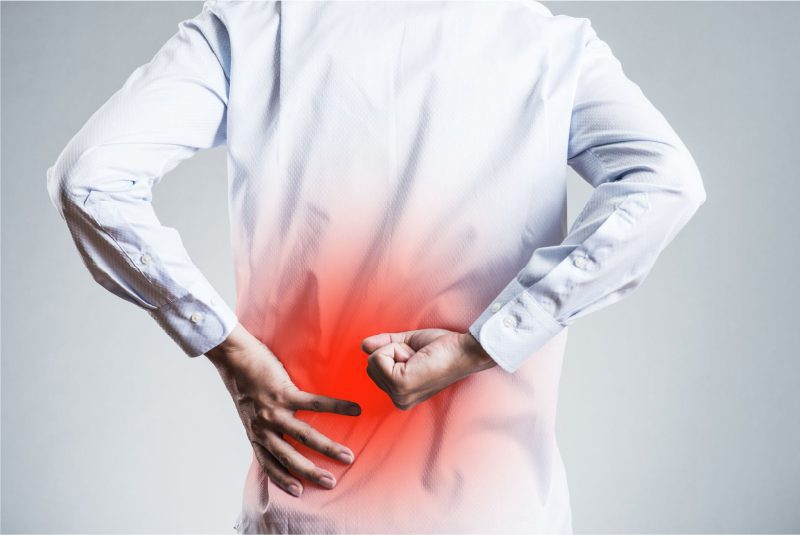

There are several possible causes of lower back pain when you sneeze, ranging from minor to serious. Some of the most common ones are:
- Herniated disc. A herniated disc occurs when the soft, jelly-like material inside one of the discs that cushion your vertebrae (the bones of your spine) pushes through a tear in the outer layer and presses on a nerve or the spinal cord. This can cause pain, numbness, tingling, or weakness in your lower back, buttocks, legs, or feet. A herniated disc can be caused by aging, injury, or overuse of your spine. Sneezing can worsen the pain by increasing the pressure on the nerve or the spinal cord.
- Muscle strain. A muscle strain is a stretch or tear in a muscle or a tendon (the tissue that connects muscles to bones). It can be caused by overexertion, poor posture, lifting heavy objects, or sudden movements. When you have a strained muscle in your lower back, it can be painful to move, bend, or twist your torso. Sneezing can also cause more pain by contracting your abdominal and back muscles.
- Vertebral compression fracture. A vertebral compression fracture is a collapse of part of a vertebra due to trauma, osteoporosis (a condition that weakens your bones), or cancer. It can cause severe pain, deformity, loss of height, or spinal cord compression. For people with osteoporosis, even a mild sneeze can cause a fracture by putting too much stress on the weakened bone.
- Sciatica. Sciatica is a condition that affects the sciatic nerve, the longest and widest nerve in your body that runs from your lower back through your hips and buttocks and down each leg. Sciatica can cause pain, numbness, tingling, or weakness in your lower back, buttocks, legs, or feet. It can be caused by various factors that irritate or compress the nerve, such as herniated disc, spinal stenosis (narrowing of the spinal canal), spondylolisthesis (slippage of one vertebra over another), piriformis syndrome (tightness of a muscle in your buttocks), or pregnancy. Sneezing can aggravate the pain by jolting or twisting your spine.
How to Prevent Lower Back Pain When You Sneeze?
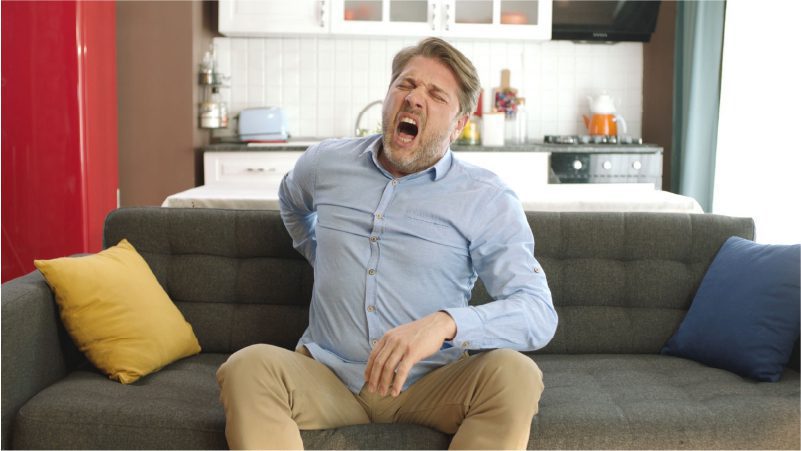

While you cannot always avoid sneezing, there are some steps you can take to prevent lower back pain when you sneeze:
- Strengthen your core muscles. Your core muscles are the muscles that support your spine and abdomen. They include your abdominal muscles, back muscles, pelvic floor muscles, and diaphragm. Having strong core muscles can help stabilize your spine and reduce the strain on your lower back during movements like sneezing. You can strengthen your core muscles by doing exercises such as planks, bridges, crunches, leg raises, or Pilates.
- Improve your posture. Having good posture means keeping your spine aligned and balanced when you sit, stand, walk, or lie down. Poor posture can cause muscle tension, joint stress, and spinal misalignment that can make you more prone to lower back pain when you sneeze. You can improve your posture by following these tips:
- When sitting: Choose a chair that supports your lower back and allows your feet to touch the floor. Keep your shoulders relaxed and your ears over your shoulders. Avoid slouching or leaning forward. Take frequent breaks to stand up and stretch.
- When standing: Keep your feet shoulder-width apart and distribute your weight evenly on both feet. Pull your shoulders back and down and tuck in your chin. Avoid locking your knees or shifting your hips to one side.
- When walking: Keep your head up and look straight ahead. Swing your arms naturally and keep them close to your body. Avoid wearing high heels or shoes that are too tight or too loose.
- When lying down: Choose a mattress, pillow, and bedding that suit your comfort and support needs. Sleep on your back or side with a pillow under your head and knees or between your legs. Avoid sleeping on your stomach or twisting your spine.
- Modify your sneezing technique. While you cannot control when you sneeze, you can try to sneeze in a way that is less forceful and less likely to cause lower back pain. Some tips are:
- Brace yourself. Before you sneeze, brace your lower back by placing your hands on your hips, leaning against a wall, or sitting on a chair with armrests. This can help stabilize your spine and prevent sudden movements.
- Bend your knees. Bending your knees slightly can help absorb some of the impact of the sneeze and reduce the pressure on your lower back.
- Tuck in your chin. Tucking in your chin can help align your head and neck with your spine and prevent jerking or twisting of your neck.
- Open your mouth. Opening your mouth wide can help reduce the force of the sneeze and allow the air to escape more easily.
- Don’t suppress your sneeze. While it may be tempting to hold back a sneeze, especially in public or when you are in pain, it is not advisable to do so. Suppressing a sneeze can increase the pressure in your chest, throat, and nose, and potentially cause damage to your eardrums, sinuses, blood vessels, or muscles. It can also force the air back into your lungs, which can trigger a cough or another sneeze.
How to Treat Lower Back Pain When You Sneeze?
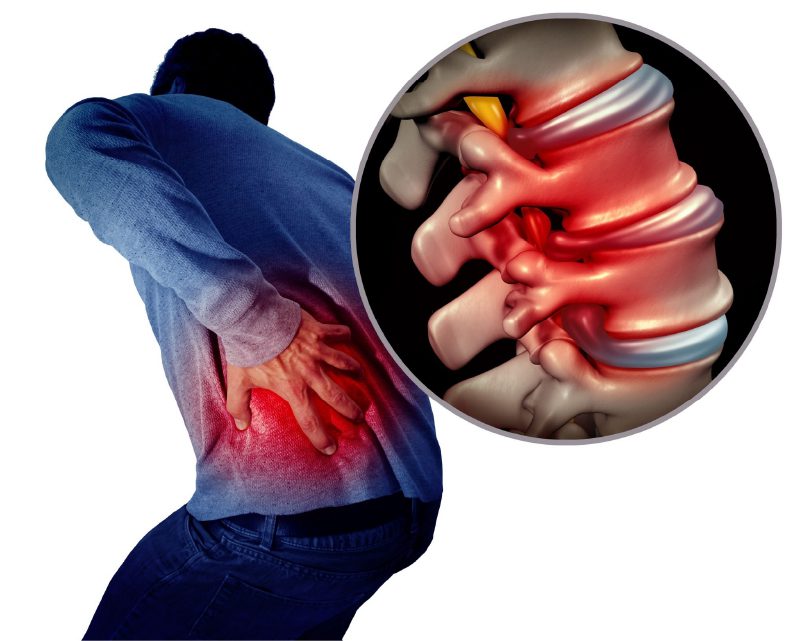

If you have lower back pain when you sneeze, there are some home remedies that may help relieve some of the pain:
- Apply a heat or ice pack to your lower back. Heat can help relax the muscles and improve blood flow to the affected area, while ice can help reduce inflammation and numb the pain. You can alternate between heat and ice for 10 minutes each, several times a day. Make sure to wrap the heat or ice pack in a cloth before applying it to avoid burns or frostbite.
- Rest your back, but not for too long. Resting your back can help ease the pain and prevent further injury, but you should not stay in bed for more than two days unless advised by a doctor. Prolonged bed rest can weaken your muscles, stiffen your joints, and slow down your recovery. You should try to resume some gentle activities as soon as possible, such as walking, stretching, or swimming.
- Take over-the-counter pain relievers. You can take over-the-counter pain relievers such as acetaminophen (Tylenol), ibuprofen (Advil), or naproxen (Aleve) to ease the pain and inflammation. However, you should not take them for more than 10 days without consulting a doctor, as they may have side effects such as stomach ulcers, liver damage, or bleeding problems.
- Try some natural remedies. Some natural remedies that may help with lower back pain when you sneeze are:
- Turmeric. Turmeric is a spice that has anti-inflammatory and antioxidant properties. You can add it to your food or drink it as a tea or milk.
- Ginger. Ginger is a root that has anti-inflammatory and analgesic effects. You can eat it raw, add it to your food or drink it as a tea.
- Capsaicin. Capsaicin is the compound that gives chili peppers their heat. It can help reduce pain by blocking pain signals from reaching the brain. You can apply capsaicin cream or patches to your lower back, but be careful not to touch your eyes or mouth after using it.
- Arnica. Arnica is a herb that has anti-inflammatory and pain-relieving properties. You can apply arnica gel or cream to your lower back or take arnica tablets orally.
When to Seek Medical Care
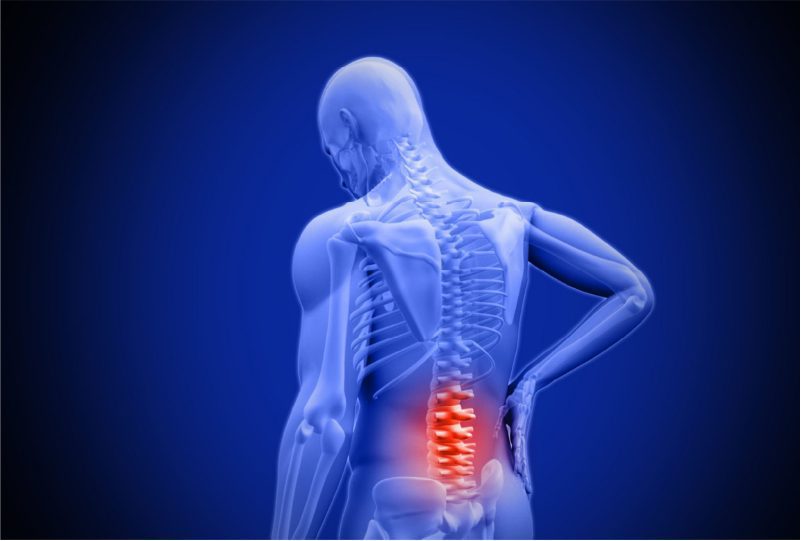

While lower back pain when you sneeze is usually not a serious condition, it may indicate an underlying problem that requires medical attention. You should see a doctor if you have any of the following symptoms along with lower back pain when you sneeze:
- Fever
- Weight loss
- Numbness or weakness in your legs
- Loss of bladder or bowel control
- Difficulty urinating
- History of trauma, cancer, osteoporosis, or steroid use
Your doctor will examine your back and ask you about your medical history, symptoms, and lifestyle habits. They may also order some tests such as X-rays, MRI scans, CT scans, blood tests, or nerve conduction studies to diagnose the cause of your lower back pain when you sneeze. They may also prescribe some medications such as muscle relaxants, anti-inflammatory drugs, steroids, or opioids to ease the pain and inflammation. In some cases, they may recommend some non-surgical treatments such as physical therapy, massage, acupuncture, chiropractic care, or spinal injections to improve your mobility and function. In rare cases, they may suggest surgery to repair the damaged disc, bone, or nerve.
FAQs on Lower Back Pain When You Sneeze
Here are some frequently asked questions about lower back pain when you sneeze:
Can lower back pain when you sneeze be a sign of COVID-19?
Lower back pain when you sneeze is not a typical symptom of COVID-19, the disease caused by the novel coronavirus. However, COVID-19 can cause other symptoms such as fever, cough, shortness of breath, loss of taste or smell, headache, sore throat, or fatigue. If you have any of these symptoms or have been exposed to someone who has COVID-19, you should get tested and follow the guidelines from your local health authorities.
How can I prevent sneezing in the first place?
Sneezing is a natural and involuntary reflex that helps your body get rid of irritants and germs. However, if you want to prevent sneezing in the first place, you can try to avoid the triggers that cause it. Some common triggers are:
Allergens such as pollen, dust mites, mold, pet dander, or food.
Irritants such as smoke, perfume, chemicals, or pollution.
Infections such as colds, flu, sinusitis, or bronchitis.
Medications such as antihistamines, decongestants, or nasal sprays.
Other factors such as bright light, spicy food, cold air, or stress. You can also try some home remedies to reduce sneezing such as drinking plenty of water, using a humidifier or a saline nasal spray to moisten your nasal passages, blowing your nose gently to clear any mucus or debris, or using a neti pot or a bulb syringe to flush out your sinuses with warm salt water.
Can I sneeze with my eyes open?
It is possible to sneeze with your eyes open, but it is not recommended. When you sneeze, your eyes close involuntarily to protect them from the force and the particles that come out of your nose and mouth. If you try to keep your eyes open while sneezing, you may risk injuring your eyes by scratching them with your eyelashes or exposing them to bacteria or viruses. You may also experience more pain in your lower back by tensing up your facial muscles.
Conclusion on Lower Back Pain When You Sneeze
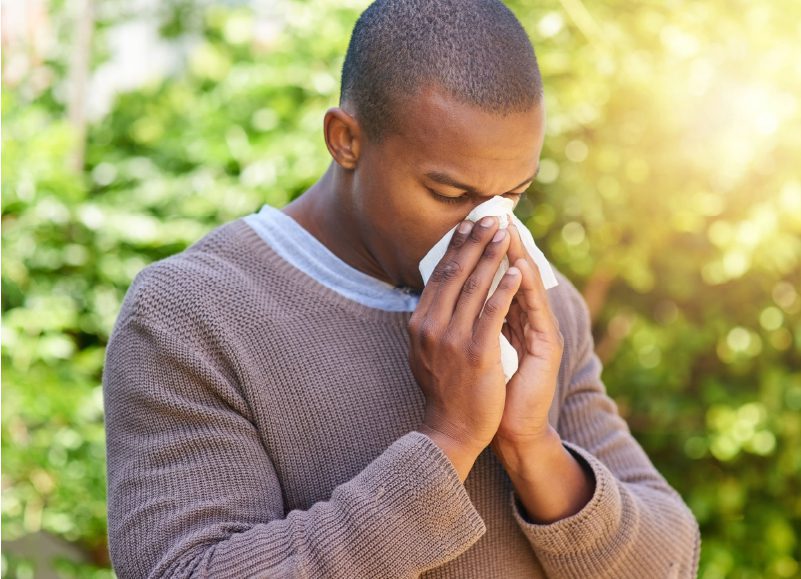

Lower back pain when you sneeze is a common and usually harmless condition that can be caused by various factors such as herniated disc, muscle strain, vertebral compression fracture, or sciatica. However, it can also indicate an underlying problem that requires medical attention. Therefore, you should see a doctor if you have any other symptoms along with lower back pain when you sneeze.
To prevent lower back pain when you sneeze, you should strengthen your core muscles, improve your posture, modify your sneezing technique, and don’t suppress your sneeze. To treat lower back pain when you sneeze, you can apply a heat or ice pack to your lower back, rest your back, but not for too long, take over-the-counter pain relievers, or try some natural remedies. You can also consult your doctor for more advice and treatment options.
We hope this article has helped you understand and cope with lower back pain when you sneeze. Remember to sneeze safely and comfortably, and take care of your back health. Thank you for reading!
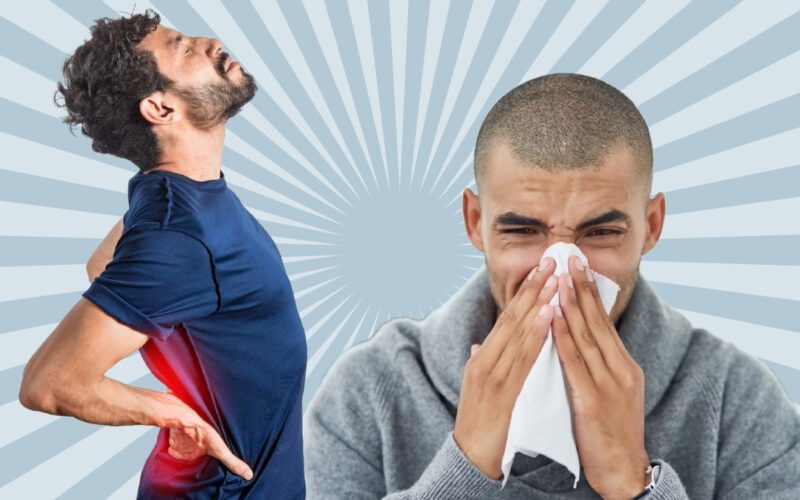




Comments 1
Comments are closed.